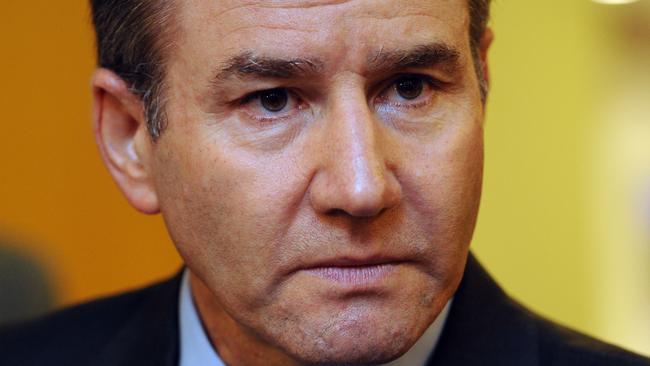Glencore prepared to make tough decisions
MINING giant Glencore says Australian coal mines will be shut down if the long downturn in commodity prices makes them unprofitable.

MINING giant Glencore says Australian coal mines will be shut down if the long downturn in commodity prices makes them unprofitable.
Glencore is Australia’s largest producer of coal used to generate electricity, with more than 8,000 workers at its 20 coal mines in NSW and Queensland.
Plunging prices sparked a decision in February to cut production by 15 million tonnes, which resulted in job losses at several sites, though the company has not disclosed how many.
Glencore’s head of global coal assets Peter Freyberg says the Australian coal operations remain under review as a global oversupply and weaker demand keeps prices low.
“We continue to review our operations in the current market environment,” he told a business function in Newcastle, the hub of Glencore’s coal operations.
“We won’t and can’t operate mines that don’t make a financial contribution.
“This approach secures the long term viability of our portfolio and although tough, is the right way to run our business.” Mr Freyberg said cost cutting was also a focus, which would likely hit local businesses.
“I’ve asked my managers to challenge every input cost into the business. This does and will impact suppliers,” he said.

Glencore’s financial health has been under immense scrutiny in recent weeks due to its $US29 billion ($A40.37 billion) in debt, and the increasing contributions to earnings from its relatively unknown commodities trading operations.
Mr Freyberg repeated the company’s recent defence of its balance sheet health, and added there was “no great mystery” about the marketing business, which he said generated income from taking advantage of price differences between separate markets.
Glencore is also optimistic about the long term demand for coal outside of China, Mr Freyberg said.
Korea, Taiwan, Vietnam, India and Japan are just some of the countries set to build more thermal power stations, he said. An increasingly militant opposition to the coal industry also ignores the reality that fossil fuels will be needed to power the economic growth of developing countries, he said.
This emerging demand also needs to be recognised by governments drawing up climate change policy, he said, which should direct funds to cutting fossil fuel emissions rather than eliminating traditional energy producers.



